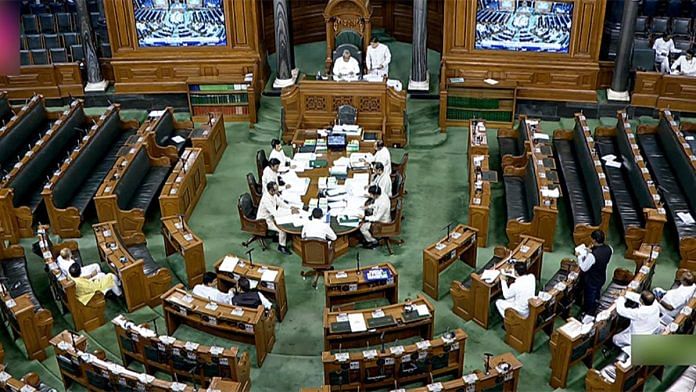New Delhi: Even as Prime Minister Narendra Modi has been batting for a single voters’ list for Lok Sabha, assembly, municipal and panchayat polls, a parliamentary panel Friday advised the government to proceed with “caution” on the proposed common electoral roll, adhere to principles of “federalism enshrined in the Constitution” and “carefully assess potential consequences”.
The BJP had pitched for a common electoral roll in its manifesto for the 2019 Lok Sabha polls.
India has two main types of electoral rolls — the general electoral rolls overseen by the Election Commission of India (ECI) for national and state-level elections, and those prepared by the state Election Commissions for municipal and panchayat polls.
In its report tabled Friday, the Standing Committee on Personnel, Public Grievances, Law and Justice, headed by BJP Rajya Sabha member Sushil Modi, expressed concern about the potential impact on State powers, mentioned under Chapter IX and IX A of the Constitution.
The committee, which looked into specific aspects of the election process and their reform, has suggested that the ECI should be careful and avoid overstepping its boundaries into the State’s domain. “Instead, the Commission (ECI) should aim to propose a solution that benefits all the parties involved,” the panel notes.
The ECI has proposed to establish a common electoral roll applicable to various types of elections — parliamentary, assembly, and local body — the panel notes in its report. The government is of the view that the initiative can enhance the efficiency and transparency of the electoral process, enabling more accurate and reliable results, it says.
Though the common electoral roll is not directly linked to holding simultaneous Lok Sabha and state elections — Modi has often spoken about ‘one nation, one election’ — constitutional experts are of the view that it could be a precursor to the same.
What panel suggests
The panel suggests that the ECI, before taking up the responsibility of preparing the common electoral roll, should give due consideration to the constitutional provisions and powers of the states. “The ECI may also keep in mind the principles of federalism enshrined under the constitution and the powers reserved for the State Election Commissions Entry 5 of List II (pertaining to state government),” says the report.
The committee further observes that implementing the common roll is currently outside the scope of Article 325 of the Constitution.
This Article stipulates that separate electoral rolls must be used for elections to Parliament and the state legislatures. The panel suggests that to ensure that all actions are in line with the Constitution, “consensus shall be made in line with Article 325”.
To ensure fair and effective implementation, the committee has recommended that extensive consultations be held with the legislative department and with the various state governments and political parties, including those who use their own electoral rolls for local body elections.
“By conducting these consultations, a final proposal on a Common Electoral Roll can be developed taking into consideration the different viewpoints and concerns of all parties involved,” the committee says in its report.
The committee has further recommended that “…. the Election Commission of India and the legislative department collaborate to preserve the rights of both State Election Commissions and state governments when preparing the Common Electoral Roll”.
(Edited by Smriti Sinha)
Also read: House panel flags low SC/ST representation in top govt posts — ‘as low as 4.8% against 22.5% quota’



